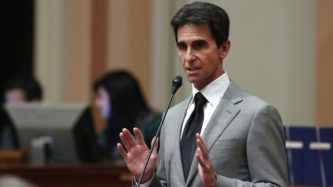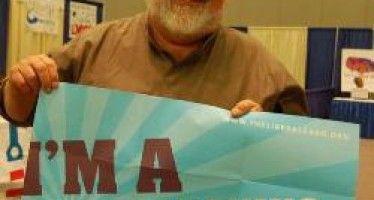Police reform measures struggling in Sacramento

Against a national backdrop of discord over police killings of black men and deadly anti-police violence, state lawmakers who back law enforcement conduct and transparency reforms are making little progress in Sacramento.
Sen. Mark Leno, D-San Francisco, introduced Senate Bill 1286 to initial success. The measure would have classified internal reports that confirmed serious misconduct by law enforcement officers as public records to be made available upon request. In April, the bill won approval in the Senate Public Safety Committee on a 5-1 vote, leading reform advocates to hope the 2016 legislative session wouldn’t be as disappointing as the 2015 session.
But the measure has yet to receive a vote or any discussion in the Senate Appropriations Committee, effectively killing it from further consideration this legislative session.
The political influence of police unions was seen as the key factor in the bill’s demise. However, unions also appear to have won a receptive audience from some lawmakers to their complaint that Leno was uninterested in working on less far-reaching reforms they might have been willing to consider. The Los Angeles Police Protective League knocked the termed-out lawmaker for preparing his measure “with no input from law enforcement.”
Law enforcement dead-set against asset seizure changes
Another high-profile reform is back for a second time after being rejected late in the 2015 session: SB443 would change state asset seizure rules to require that an individual be convicted of a crime before his or her assets could be seized by law enforcement. Sen. Holly Mitchell, D-Los Angeles, and Assemblyman David Hadley, R-Manhattan Beach, are leading the fight for the measure, saying current rules allow law enforcement to disregard due process in pursuit of the budget-boosting money they can get by cooperating in federal asset-seizure programs intended to thwart drug trafficking. California agencies got $86 million in 2015 from the U.S.
Mitchell and Hadley argue that the profit motive warps law enforcement’s judgment.
“When you get outside of [the Capitol] you get a general consensus that something like this in its broad form should not be happening in the United States,” Hadley told the Los Angeles Times.
Nevertheless, they made a significant change to their bill in response to past criticism: a section was added to allow seizure of assets from suspects who flee or can’t be found.
That hasn’t assuaged the coalition of police and prosecutors who thwarted the previous version of the bill in the Assembly in 2015 after it won easy passage in the Senate. Its strongest voices depict asset-seizure reform as “a message to drug dealers that the cost of doing business has gone down,” in the words of Ventura County District Attorney Gregory Totten.
SB443 was rejected by the Assembly 44-24 last September after passing the Senate 38-1 in June 2015. With 63 Assembly incumbents seeking re-election this November — some in districts that now appear more competitive because the “top two” primary change allows moderate candidates to make the general election ballot — the prospects for the measure don’t appear strong.
Chris Reed
Chris Reed is a regular contributor to Cal Watchdog. Reed is an editorial writer for U-T San Diego. Before joining the U-T in July 2005, he was the opinion-page columns editor and wrote the featured weekly Unspin column for The Orange County Register. Reed was on the national board of the Association of Opinion Page Editors from 2003-2005. From 2000 to 2005, Reed made more than 100 appearances as a featured news analyst on Los Angeles-area National Public Radio affiliate KPCC-FM. From 1990 to 1998, Reed was an editor, metro columnist and film critic at the Inland Valley Daily Bulletin in Ontario. Reed has a political science degree from the University of Hawaii (Hilo campus), where he edited the student newspaper, the Vulcan News, his senior year. He is on Twitter: @chrisreed99.
Related Articles
California High-Speed Rail crashing into reality
June 27, 2012 By Josephine Djuhana Gov. Jerry Brown, alongside a number of lawmakers, continues the push to build the
Other States REPEALING Income Tax
John Seiler: California used to be a trendsetter, from boogie boards to surf music. Now it’s a retrograde state. It’s
UC Berkeley prof behind invest/spend semantic ploy
AP reporter Judy Lin had a fun story Wednesday about how Democrats are playing the semantic spin game: “SACRAMENTO, Calif.



